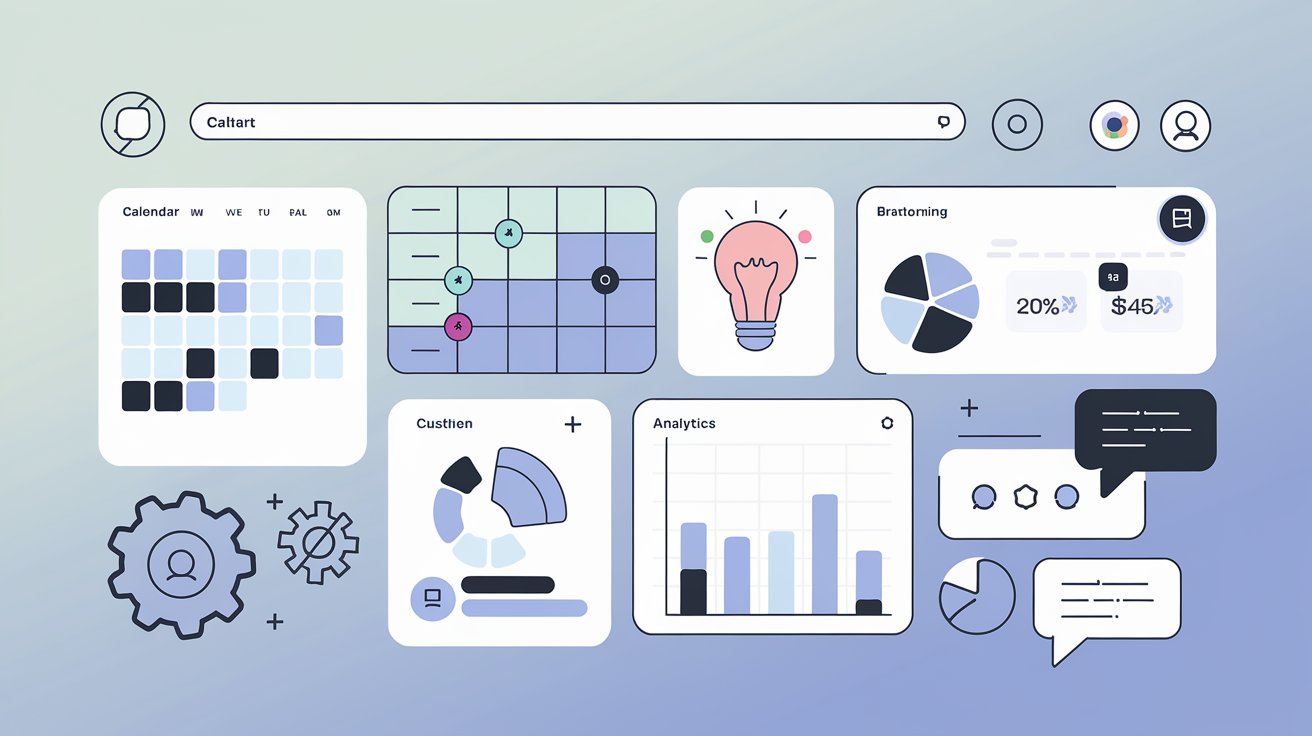In today’s digital age, businesses face a crucial decision when selecting their marketing tools. The choice between marketing cloud software and traditional marketing tools can significantly impact their success in reaching and engaging customers.
Understanding Marketing Cloud Software
Marketing cloud software represents an integrated suite of digital marketing tools designed to streamline and automate marketing processes across multiple channels. These platforms offer comprehensive solutions for email marketing, social media management, analytics, and customer relationship management (CRM) in one unified ecosystem.
Key Features of Marketing Cloud Software
- Automation Capabilities: Automated campaign execution and workflow management
- Data Integration: Seamless integration of customer data across channels
- Real-time Analytics: Instant access to performance metrics and insights
- Personalization: Advanced customer segmentation and targeting
- Scalability: Easy scaling of marketing operations as business grows
Traditional Marketing Tools: The Conventional Approach
Traditional marketing tools encompass various standalone solutions and conventional marketing methods that businesses have relied upon for decades. These include separate tools for email marketing, social media management, and analytics, along with traditional advertising channels.
Characteristics of Traditional Marketing Tools
- Independent Solutions: Separate tools for different marketing functions
- Manual Processes: More hands-on approach to campaign management
- Established Methods: Well-understood and tested marketing techniques
- Direct Control: Greater hands-on control over individual marketing elements
- Simple Learning Curve: Generally easier to learn and implement
Comparison Table: Marketing Cloud Software vs. Traditional Marketing Tools
| Feature/Aspect | Marketing Cloud Software | Traditional Marketing Tools |
|---|---|---|
| Initial Cost | Higher upfront investment | Lower initial costs |
| Integration | Seamless built-in integration | Manual integration needed |
| Scalability | Highly scalable | Limited scalability |
| Learning Curve | Steeper learning curve | Easier to learn |
| Data Analytics | Advanced real-time analytics | Basic analytics, often delayed |
| Automation | Comprehensive automation | Limited or manual processes |
| Customization | Extensive options | Basic customization |
| Updates | Regular automatic updates | Manual updates required |
| Cross-channel Marketing | Built-in coordination | Manual coordination needed |
| ROI Tracking | Advanced tracking capabilities | Basic tracking tools |
Advantages of Marketing Cloud Software
- Unified Platform: All marketing tools and data in one place
- Advanced Analytics: Deep insights into customer behavior and campaign performance
- Automation: Reduces manual work and human error
- Scalability: Easily adapts to growing business needs
- Integration: Seamless connection between different marketing functions
Benefits of Traditional Marketing Tools
- Cost-Effective: Lower initial investment
- Simplicity: Easier to understand and implement
- Direct Control: More hands-on management of marketing efforts
- Flexibility: Choose specific tools for specific needs
- Familiarity: Well-established methods and processes
Making the Right Choice
The decision between marketing cloud software and traditional marketing tools depends on several factors:
Consider Marketing Cloud Software If:
- Your business is scaling rapidly
- You need advanced automation capabilities
- Integration is a top priority
- You have the budget for a comprehensive solution
- You require sophisticated data analytics
Stick with Traditional Marketing Tools If:
- You’re a small business with basic marketing needs
- Budget is limited
- You prefer direct control over marketing processes
- Your team is comfortable with existing tools
- You don’t require complex automation
Future Outlook
The marketing technology landscape continues to evolve, with marketing cloud software becoming increasingly sophisticated while traditional tools adapt to incorporate more digital features. The future likely holds a hybrid approach, where businesses combine elements of both systems to create optimal marketing strategies.
Conclusion
Both marketing cloud software and traditional marketing tools have their place in modern business. The choice depends on your organization’s size, budget, technical capabilities, and marketing objectives. While marketing cloud software offers advanced features and integration, traditional tools provide simplicity and cost-effectiveness. The key is to assess your specific needs and choose the solution that best aligns with your business goals and resources.

